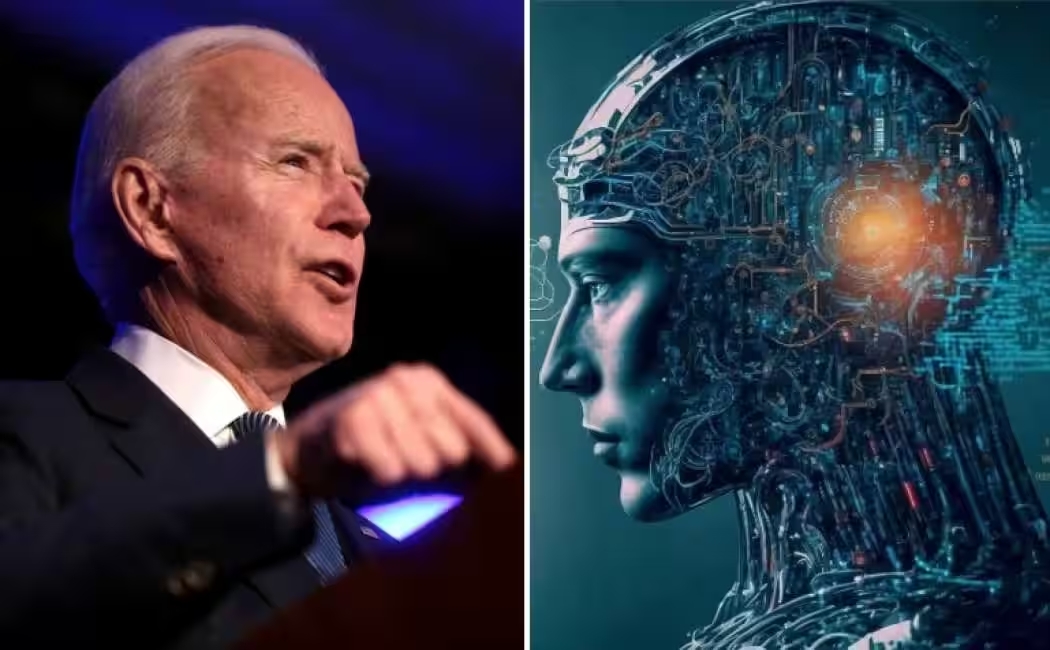in the 2024 Elections
L’anno 2024 è destinato a essere un momento cruciale nella storia politica globale. Oltre quattro miliardi di persone nel mondo avranno l’opportunità di esprimere il loro voto per presidenti, primi ministri e altri leader politici. Paesi come gli Stati Uniti, l’India, la Gran Bretagna, l’Indonesia, il Messico e Taiwan vedranno la loro popolazione impegnata in elezioni di importanza fondamentale. Tuttavia, l’aspetto più preoccupante di queste elezioni non è tanto chi vincerà, quanto piuttosto il ruolo che l’intelligenza artificiale (IA) generativa potrebbe giocare nell’intero processo elettorale.

From the Era of Fake News to the Advent of AI-Generated Propaganda
Elezioni e propaganda sono due facce della stessa medaglia, e la storia è ricca di esempi di disinformazione e manipolazione. Tuttavia, quello che differenzia le elezioni del 2024 è la sofisticazione della tecnologia coinvolta. In passato, le campagne di disinformazione erano eseguite da esseri umani che usavano metodi tradizionali, come il passaparola o i media convenzionali. Oggi, con l’avanzamento dei modelli di intelligenza artificiale, le notizie false possono essere generate in modo più convincente e in quantità industriale. Ma come cambierà realmente questo scenario il panorama delle elezioni e della democrazia?
Le Sfide della Quantità e della Qualità nella Disinformazione
La disinformazione generata da IA presenta due principali tipi di sfide: quantità e qualità. In termini di quantità, immagina un’operazione di disinformazione eseguita su scala massiva, dove migliaia o addirittura milioni di messaggi vengono inviati agli elettori. Inoltre, la capacità dell’IA di produrre contenuti iperrealistici, come audio, foto o video, rende la qualità della disinformazione più insidiosa e difficile da rilevare. Tutto questo è reso ancora più efficace grazie alla precisione del microtargeting, che consente di personalizzare la propaganda per ogni singolo elettore.
La Fiducia nella Democrazia è a Rischio?
L’Intelligenza Artificiale nelle Elezioni del 2024, di fronte a queste nuove dinamiche, la fiducia nella democrazia potrebbe essere erosa. Gli elettori, già disincantati dalla politica, potrebbero diventare ancora più cinici e scettici, rifiutando di credere in qualsiasi informazione. Tuttavia, è importante notare che influenzare l’opinione pubblica è un compito arduo, nonostante gli enormi budget spesi nella propaganda. Le ricerche storiche suggeriscono che cambiare le opinioni degli elettori è più difficile di quanto si pensi.

The Importance of Regulation and Countermeasures
Dato il rischio intrinseco, diverse aziende nel campo dell’IA stanno adottando misure preventive. Per esempio, OpenAI, la società dietro ChatGPT, sta lavorando per monitorare i suoi modelli e rilevare potenziali usi impropri. Allo stesso modo, grandi piattaforme come Alphabet e Meta stanno diventando sempre più sofisticate nel riconoscere e segnalare account sospetti e contenuti manipolati. Tuttavia, la regolamentazione ha i suoi limiti. Piattaforme come TikTok sono progettate per favorire la viralità, e il rilassamento della vigilanza su piattaforme come Twitter potrebbe aprire la porta a più abusi.
Beyond Technological Determinism: The Human Being remains at the Center
Nonostante queste preoccupazioni, l’analisi dell’Economist suggerisce una nota di ottimismo. La storia ci ha insegnato che ogni nuova forma di media e tecnologia non ha un impatto unidirezionale sulla società. Gli effetti dei nuovi media sono stati ampiamente dibattuti e studiati, e il ruolo dell’individuo come interprete attivo del messaggio non può essere sottovalutato. In altre parole, anche di fronte a innovazioni tecnologiche come l’IA generativa, l’essere umano rimane l’attore principale, capace di discernimento e scelta.
In conclusione, L’Intelligenza Artificiale nelle Elezioni del 2024 rappresenta indubbiamente una nuova variabile nel complesso mondo delle elezioni, la sua capacità di minare le fondamenta della democrazia resta un argomento aperto al dibattito. Il futuro, come sempre, è nelle mani degli elettori.



